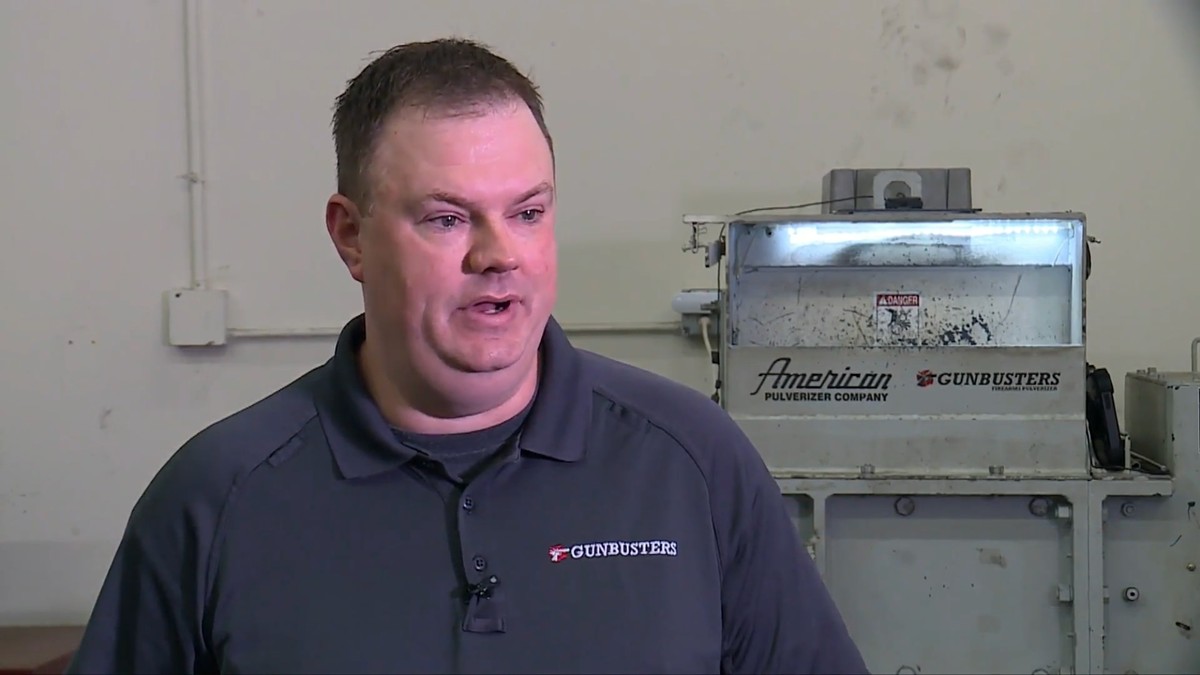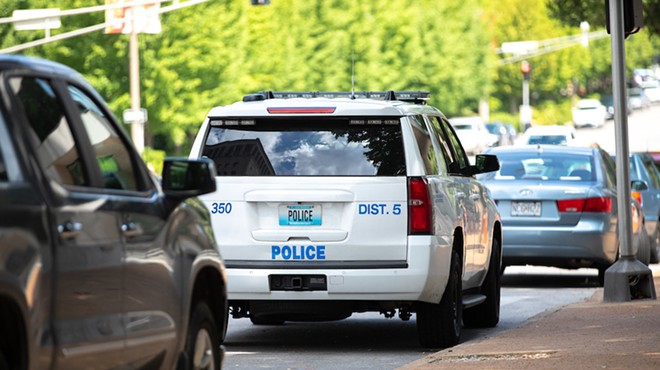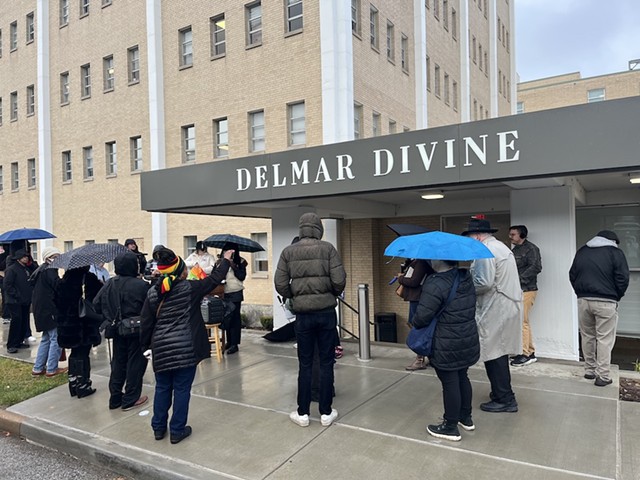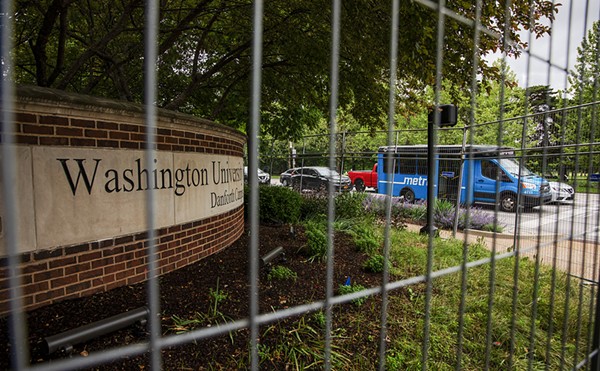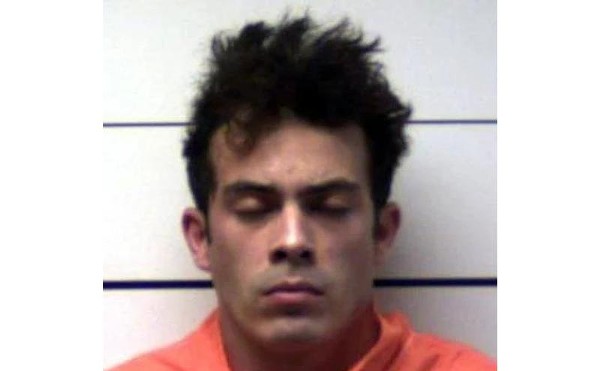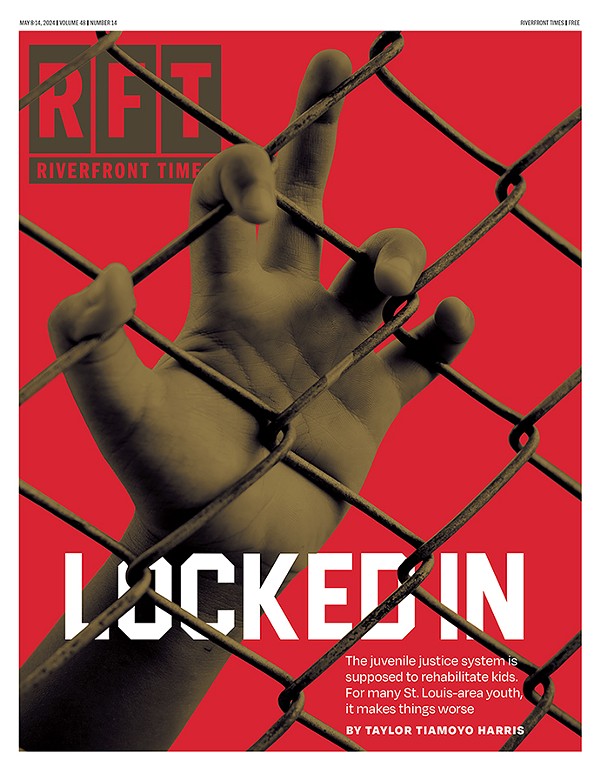In St. Louis and across the country, gun buybacks have been touted as a way to get firearms out of the hands of criminals and permanently destroyed.
But in many cases, including gun buybacks sponsored by police in St. Louis, it turns out that’s not what happens. The guns instead end up back on the streets — in part due to a workaround utilized by a Missouri company founded by a former St. Louis police officer.
The company is called Gunbusters. For the past 10 years, in many cases when guns have been taken off the streets of St. Louis as part of police gun buyback programs, the departments organizing those buybacks send the firearms to Gunbusters for disposal.
Yet an in-depth investigation published Sunday by the New York Times found that Gunbusters — as well as many other similar companies — often only destroys a very specific part of the gun called the frame, affixed with the gun's serial number. Gunbusters then sells the firearm's remaining components.
Those components, the paper found, can be used as replacement parts in another gun or can even wind up being used to build a "ghost gun," a firearm that is virtually untraceable because its frame has no serial number.
Gunbusters and its licensees, the New York Times found, do about $90,000 a week in sales of parts from disassembled guns, including the selling of barrels, triggers, springs and grips.
Gun buybacks seem like a win-win because the person turning in the gun gets money or a gift card and the police get to take a gun off the street. But in essence, the daily reports, the gun that is bought back, or at least key portions of it, instead often forms the base of a new gun.
Gunbusters founder Raymond Reynolds served with the St. Louis Metropolitan Police Department from 1964 until 1988 before founding his company in 2013, according to ads Reynolds placed in Gendarme, the official publication of the St. Louis Police Officers Association. Throughout the years, the company has gotten a lot of positive press from local media, including the Riverfront Times. "Unwanted gun, who are you gonna call? For police, it’s Gunbusters," reads one 2016 headline from Fox 2 News.
Around the time of the company's founding, Reynolds told the RFT that he created his company's Firearms Pulverizer as a more efficient and safer alternative for police departments to destroy guns. At the time, departments were using saws, torches and sledge hammers or in some cases just tossing guns into the ocean.
"We've had more and more departments that have asked us to help them come up with a way to dispose of firearms," Reynolds told the RFT. "I was trying to figure out how to come up with a simple system to do it."
The New York Times piece doesn't say if Gunbusters was selling the gun components from the start or if that practice is a more recent addition to their business model. According to data from the company, approximately 950 law enforcement organizations from around the country have sent more than 200,000 guns to them to be pulverized. It's previously been reported that the company has worked with around 20 police agencies in the metro region.
When reached for comment, Reynolds told the RFT yesterday that he was "basically retired" from the company and that he had been stepping back for the past two years. He referred all further questions to the company's current president, Scott Reed.
Reed told the RFT in a statement that, “We disagree with a number of points in the story, with our main disagreement being that law enforcement agencies are unaware of what is happening with the firearms. The implication that agencies are being deceived about how the firearms are destroyed and how GunBusters is funded is patently false.”
The statement from Reed went on to say that when the company has an initial meeting with police departments, the police are offered a choice for any guns turned over to be completely pulverized, for a fee, or for only the frames to be destroyed, for free, with the remainder of the weapon “salvaged.”
According to the Bureau of Alcohol, Tobacco, Firearms and Explosives, destroying only the gun frame is an acceptable manner in which to destroy a firearm.
The Times pointed out, however, that the Gunbusters website doesn't make mention of the practice of selling component parts nor does that facet of the business feature in most stories about gun buybacks. (Contracts the company enters into with law enforcement do state, however, that Gunbusters “will sell salvaged parts and scrap metals” from the guns turned over to them.)
In 2017, another company founded by Reynolds, Police Trades, brokered a $1.2 million deal between the SLMPD and other gun dealers that enabled the department to sell a cache of Prohibition-era Tommy guns as well as outdated Beretta handguns and use the money to buy modern service weapons for their officers. In that deal, the department said that the weapons sold to dealers would only be sold to people who passed background checks.
or follow on Twitter at @RyanWKrull.
Subscribe to Riverfront Times newsletters.
Follow us: Apple News | Google News | NewsBreak | Reddit | Instagram | Facebook | Twitter | Or sign up for our RSS Feed

